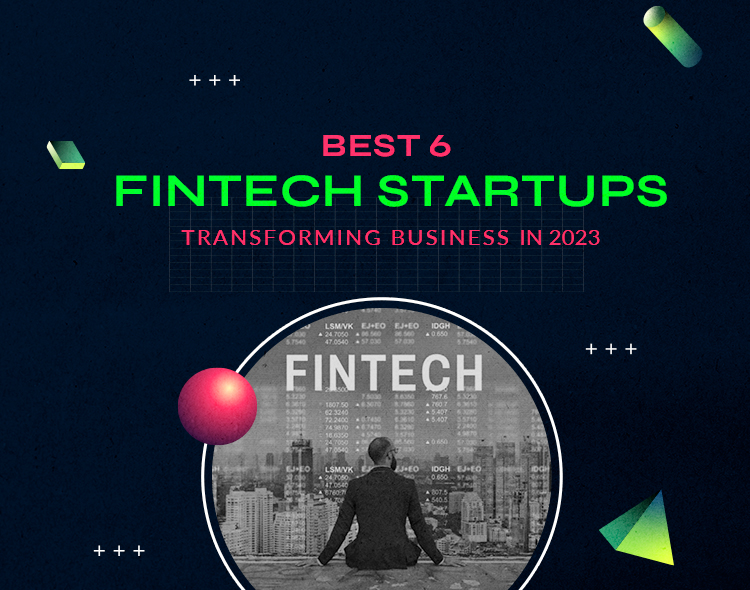“Huge.” “Surging.” “Very hot.”
Those were just a couple of the terms financial news outlets used to describe the fintech market in 2023.
If you’ve ever made a Venmo payment or used a robo-advisor for investing, you’re already somewhat familiar with the fintech and how it works.
Summary
- Introduction
- The Fintech industry
- What Actually Fintech Embraces?
- Usage Of Fintech For A Common Man
- What is FinTech transformation?
- How exactly does the use of FinTech benefit businesses?
- Best 6 Fintech Startups Revolutionizing Business in 2023
- Future Wings Of Fintech
Introduction
“WE TEND TO OVERESTIMATE THE EFFECT OF A TECHNOLOGY IN THE SHORT RUN AND UNDERESTIMATE THE EFFECT IN THE LONG RUN.”
Nowadays, we associate fintech with cryptocurrencies and start-up banks, but its origins can be traced back to how individuals conducted business in the late 19th century, including the introduction of digital money and double-entry accounting. Using telegraph and Morse code, the first transatlantic cable and Fedwire in the United States in 1886 enabled the first electronic fund transfer system. At that time, fintech referred to the use of computer technology to the back office of banks or trading organizations. As a result, the first ATM, the first digital stock exchange NASDAQ, and SWIFT were developed as part of the Fintech stack for finance.
In the 1990s, the first steps towards digital banking were taken, and PayPal was introduced, foreshadowing the new payment Fintech systems and IT integration that would emerge as the globe became increasingly online. With the introduction of cloud computing and back office automation, Smartphones subsequently saturated the market and individuals began using the Internet for mobile banking and other financial services. Later, in 2009, Bitcoin emerged, followed by other cryptocurrencies and NFTs utilizing blockchain technology and the rest is history.
Read More links for Fintech – FinTech RADAR: 105 U.S. Fintech Unicorns And Their Core Offerings
The Fintech industry
Fintech organizations, which include startups, technology firms, and existing financial institutions, use emerging technologies like Big Data, Artificial Intelligence, Blockchain, and Cloud Computing to make financial services more accessible and effective. Since the Internet and smartphone revolutions, however, financial technology has shifted to Web 3.0 and metaverse and become more unpredictable.
Transferring money, depositing a check with a smartphone, applying for credit without visiting a bank branch, acquiring capital for a business beginning, and maintaining investments are a few further instances of financial transactions that can be completed without the assistance of a person.
Read: What Is Data Science?
A lot has been covered under the FinTech RADAR 2023 which nutshelled the boosters of the fintech domain. Fintech organizations, which include startups, technology firms, and existing financial institutions, use emerging technologies like big data, artificial intelligence, blockchain, and cloud computing to make financial services more accessible and effective. Since the Internet and smartphone revolutions, financial technology has shifted to Web 3.0 and metaverse and become more unpredictable.
Transferring money, depositing a check with a smartphone, applying for credit without visiting a bank branch, acquiring capital for a business, and maintaining investments are a few further instances of financial transactions that can be completed without the assistance of a person. According to EY’s 2017 Fintech Adoption Index, one-third of consumers utilize at least two or more fintech services, and their awareness of fintech’s role in their daily lives is growing.
Read: 5 Unconventional Ways To Make Money On Crypto In 2023
What Actually Fintech Embraces?
- Digital Wallets and Payment gateways (PayPal, Venmo, Square, Apple Pay)
- Cryptocurrency and Blockchain DLT (virtual currency like Bitcoin)
- SaaS Platforms (Software as a service)
- Crowdfunding platforms ( Kickstarter, GoFundMe)
- BNPL (Buy now pay later)
- Contactless technology (Digital cash, tokens like NFT)
- Insurtech (Oscar Health, Credit Karma )
- Regtech (Anti-Money Laundering, KYC protocols)
- Robo-advisors (algorithms to automate investment advice-Betterment, Ellevest)
- Smart assistants (siri, hey google)
- P2P lending (Prosper, Upstart allow)
- Personal Finance apps (Mint, Quicken)
- Payments (Venmo, Zelle)
- Stock trading apps (Robinhood, Acorns)
Usage Of Fintech For A Common Man
The use of smartphones for mobile banking, investing, borrowing services, and cryptocurrency are examples of technology meant to increase public access to financial services. Formerly, individuals needed to physically visit a bank for any financial support or service, but fintech has made it feasible to invest, borrow, save, and transfer monies using online applications without ever leaving the house. While though traditional institutions were slow to adopt fintech solutions, both startups and big businesses invested in the new digital superpower environment.
Today, every individual can benefit from a plethora of self-service Fintech tools.
Read: Global Fintech Interview with Jitin Bhasin, Founder & CEO at SaveIN
Exploring Fintech Through Lens
By launching Crowdfunding Platforms, Fintech increases its relationships with clients directly. PayPal Holdings is the undisputed leader in online payment processing, but it offers so much more. Prominent programming languages in the financial industry include Java, C++, Python, and Ruby. Fintech has also effectively spawned InsureTech, which encompasses online policy management, data protection, and customized insurance.
Robo-advice has disrupted the asset management industry by giving algorithm-driven suggestions and individualized portfolio management while reducing human help dramatically. Although it may sound like diving into FinTech without swimming expertise, this is precisely how one learns. So let’s dive into this Fintech pool with information, from which we can learn a great deal.
What is FinTech transformation?
The term “financial technologies,” or “fintech,” refers to the application of cutting-edge technology to the improvement or digitization of more traditional financial activities. The use of technologies such as blockchain, cloud computing, artificial intelligence, advanced analytics, and other software solutions for the financial sector all contribute to the modernization, automation, and acceleration of these sectors.
How exactly does the use of FinTech benefit businesses?
Businesses are able to accept a range of payment methods, including credit cards, debit cards, and digital wallets, thanks to the services provided by fintech companies. They typically come with reduced transaction fees compared to traditional payment processors, which can help minimize your overhead costs throughout the course of your business’s lifetime.
- Cloud accounting
Data and software may now be accessed online from any device at any time, anywhere, thanks to the cloud. Business owners can maintain contact with their data and accountants thanks to online accounting. You may monitor your progress against your cash flow prediction in real-time. This makes it possible for you to immediately and accurately anticipate the future cash position. Cloud accounting software is a great investment if you want to help your company operate more quickly and intelligently.
You’ll have a clearer picture of your finances and improved team communication if you work in the cloud. Accounting software that isn’t cloud-based might be time-consuming and need far more of your time and effort than is necessary. Additionally, you can gain from the ability to interface with a vast ecosystem of add-ons that support better management of your company and decision-making. Scalable, affordable, and simple to use. Intuit and Xero, two highly beneficial tools with advantages and benefits depending on the size and sophistication of your organization, are some of the best examples of these international software companies.
- Increasing Access To Capital
Business owners looking to develop through a business loan may unknowingly be turned away due to the strict and frequently demanding restrictions traditional lenders have. The terms that are frequently provided to businesses may make it more difficult than necessary for them to obtain the financing they want to expand. Due to the fair playing field created by a large number of digital lenders, small business owners now have greater access to finance.
Generate AI Images From Text Using DALL-E : A Revolutionary Tool By OpenAI
- Making Paying Bills Simpler
The days of hefty stacks of paper bills that needed to be sorted through to remain on top of operational expenditures are long gone. Fintech has given business owners all around the world the ability to track their transactions and funding from the comfort of their own homes with the swipe of a finger or click. Business owners are held more responsible and are better able to plan the inflow and outflow of their cash thanks to notifications and automatic pulls.
Fintech is entrenched in the technical world, even though traditional lenders have just begun to offer this as well. With waves of innovation being consistently pushed out by an ever-expanding industry, these businesses are continually at the forefront of the future and working to make payment as simple as possible. All parties will undoubtedly gain from innovation since it makes it more difficult for traditional lenders to keep up with the ongoing changes brought about by fintech.
- Cybersecurity
Cyberattacks cost the U.S. billions of dollars each year. Because they handle a lot of sensitive customer data but lack the resources to invest in the same security infrastructure as larger companies, small businesses are particularly vulnerable to these types of attacks, making them a prime target for malicious cyber actors. Fortunately, fintech solutions provide affordable cybersecurity for businesses of all sizes.
That includes advanced authentication features like biometrics, two-factor authentication, and multifactor authentication. Encryption and tokenization can protect sensitive information like payment info and login credentials. At the same time, AI-powered fraud detection algorithms can analyze large amounts of data, enabling them to detect fraudulent transactions in real-time.
- Increasing The Time It Takes To Access Capital
Speed is crucial when it comes to technology. Why should getting access to capital be any different given that we all strive for the quickest processing power and internet speeds? Modern AI has advanced to the point that fintech companies may now tailor their algorithms to expedite the pre-approval of businesses. By reducing the amount of paperwork needed to prove a company’s eligibility for finance, the fintech sector has removed many of the barriers that small businesses faced, saving them time spent on applications. This is particularly crucial for businesses that require cash right away.
- Promoting more affordable rates
Although competition is healthy for business, in the fintech industry, business owners stand to gain the most. Since there are so many competitors in the alternative financing market, businesses must maintain competitive rates to entice entrepreneurs to shop about and give them the power to decide what is best for their company both now and in the future. Fintech companies are rewriting the rules by providing more flexible rates and shorter term periods, like 16 months, while traditional banking normally has strict policies and rates.
The process of fintech is likewise constrained. Entrepreneurs who are less tech-savvy or who are easily put off by an online application process may be discouraged by being anchored in the technology sector. The fintech sector may turn to conventional lending techniques as it develops in order to broaden its reach and adopt some of the more humane approach’s features in order to support small-business communities even more or to increase education so that everyone may apply. Technology is advancing and becoming more widely available every day, which eventually helps small-business owners. Doors that were previously closed to small enterprises will remain open as a result of technology, allowing them to keep expanding.
- Engagement & Customer Insights
Fintech offers firms deep client insights, which is one of its main advantages. Fintech for payment processing gives information about consumer trends as well as information about interests, needs, and wants. Small businesses can enhance their marketing for prospects and existing consumers using the data supplied by fintech.
For instance, Square gives businesses free access to customer interaction tools like private messaging with clients, a customer directory where business owners can view loyalty behavior, email collection tools, and consumer insights like visit frequency. Additionally, firms can incorporate marketing tools like Facebook customer feedback requests and automated email marketing campaigns with fintech payment processing. These functions are not available in conventional POS systems.
- Simplifying Complex Processes
One effect of the pandemic is that corporations have been less productive, according to Bain & Company. And one way for finance teams to create efficiencies is through spend reconciliation—an area where innovation has been slow. In many firms, spend reconciliation and payment authorization is still highly labor-intensive, swallowing large amounts of accounting time.
But fintech tools can automate many of these processes, such as the three-way matching necessary to approve incoming invoices from suppliers, as well as the more complex and highly fragmented area of travel and expense spend, with its proliferation of employees’ receipts for miscellaneous goods and services. Fintech systems can also help provide greater visibility into what employees are spending, delivering control, real-time flagging of out-of-policy expenditures, and automated analytics. And tools that automatically link expenditure to individual employees and functions can greatly simplify and speed up time-consuming manual budget allocations.
- Ecommerce
Additionally, setting up an Internet store is simple for small businesses. Moreover, ecommerce sales in the US increased by 15% in 2022. According to Statista, retail ecommerce sales in the United States are anticipated to increase annually until 2023, from $560.7 million in 2019 to $735.3 million in 2023. Numerous e-commerce platforms with specialized assistance are available to small enterprises, including BigCommerce, Shopify, and 3dcart.
Even new digital payment methods are being adopted by some small enterprises, including the fee-free cryptocurrency Bitcoin. Several businesses presently accept Bitcoin, including Microsoft, Overstock.com, and CheapAir.com.
Best 6 Fintech Startups Transforming Business in 2023
It is a global fintech company that offers automated financial connectivity, enterprise integration, and cash and bank account management for all kinds of financial and non-financial institutions. Axletree Solutions is reigning in the fintech ecosystem with innovative connectivity solutions.
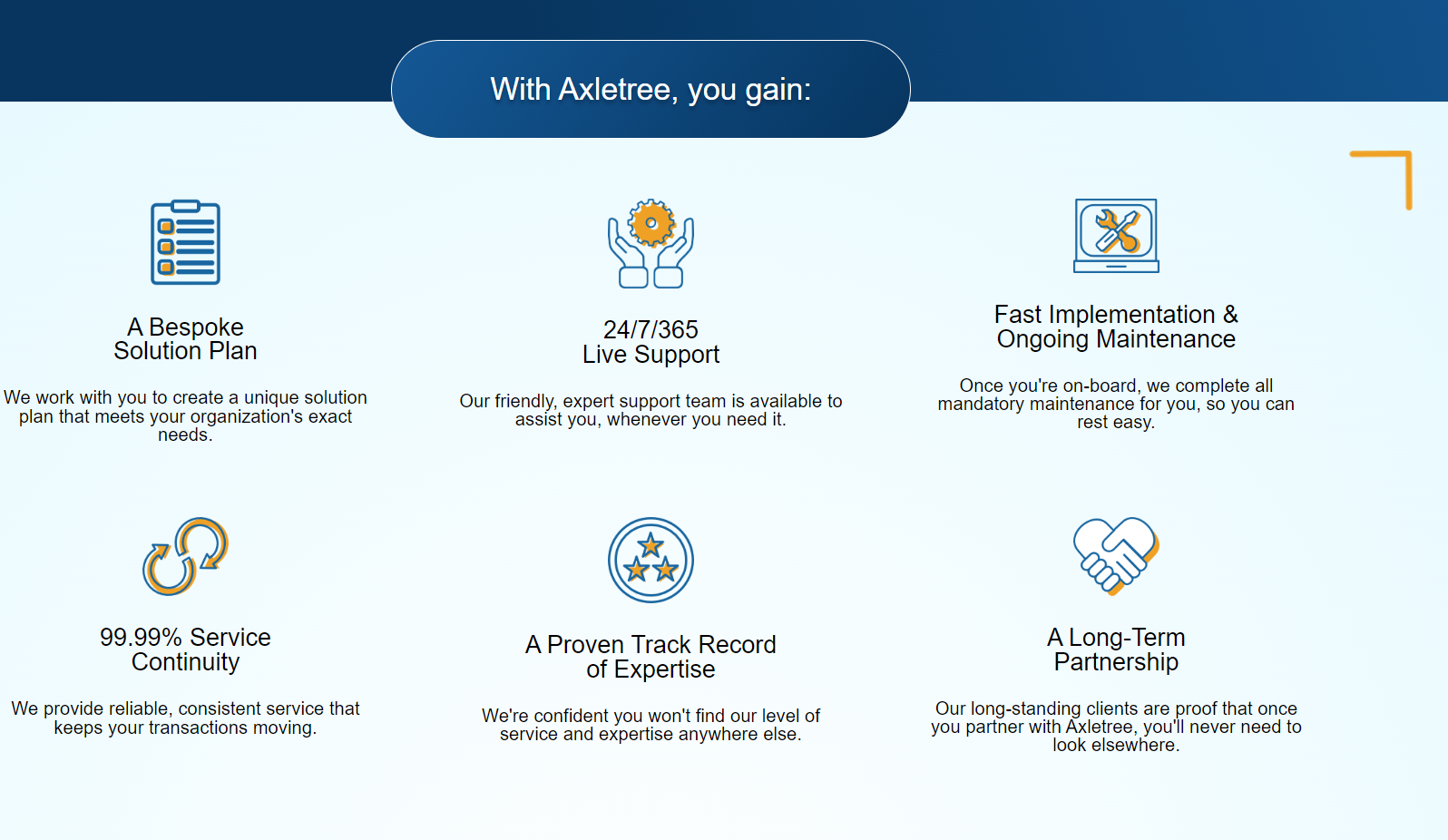

In today’s digital age, data-driven decisions are the key to unlocking sustained market growth. Businesses create mountains of financial data that can help them optimize their operations, strengthen their financial positions, and help them better serve their customers. However, they lack the ability to collect, understand, analyze, and use this data to their advantage. To solve this challenge for its clients, Axletree has launched Insights by Axletree, a cutting-edge, cloud-based business intelligence platform. Insights convert data generated by Axletree’s suite of solutions into actionable information companies can leverage to gain an advantage over their competition.
Banking as a Service -financial solutions that help your business scale. Creating Innovative Solutions to Shape the FinTech Sector-Three years after its debut, ConnectPay has become one of Lithuania, the continent’s top fintech hubs,’s fastest-growing Electronic Money Institutions (EMIs). By the volume of activities, the company ranks a solid second among 80 Lithuanian EMIs, and third by the amount of customer cash retained in the account. The primary objective of ConnectPay is to offer commercial and institutional clients financial payment services. Their most popular services are SEPA & SWIFT payments, multi-currency accounts, corporate cards, and merchant accounts.
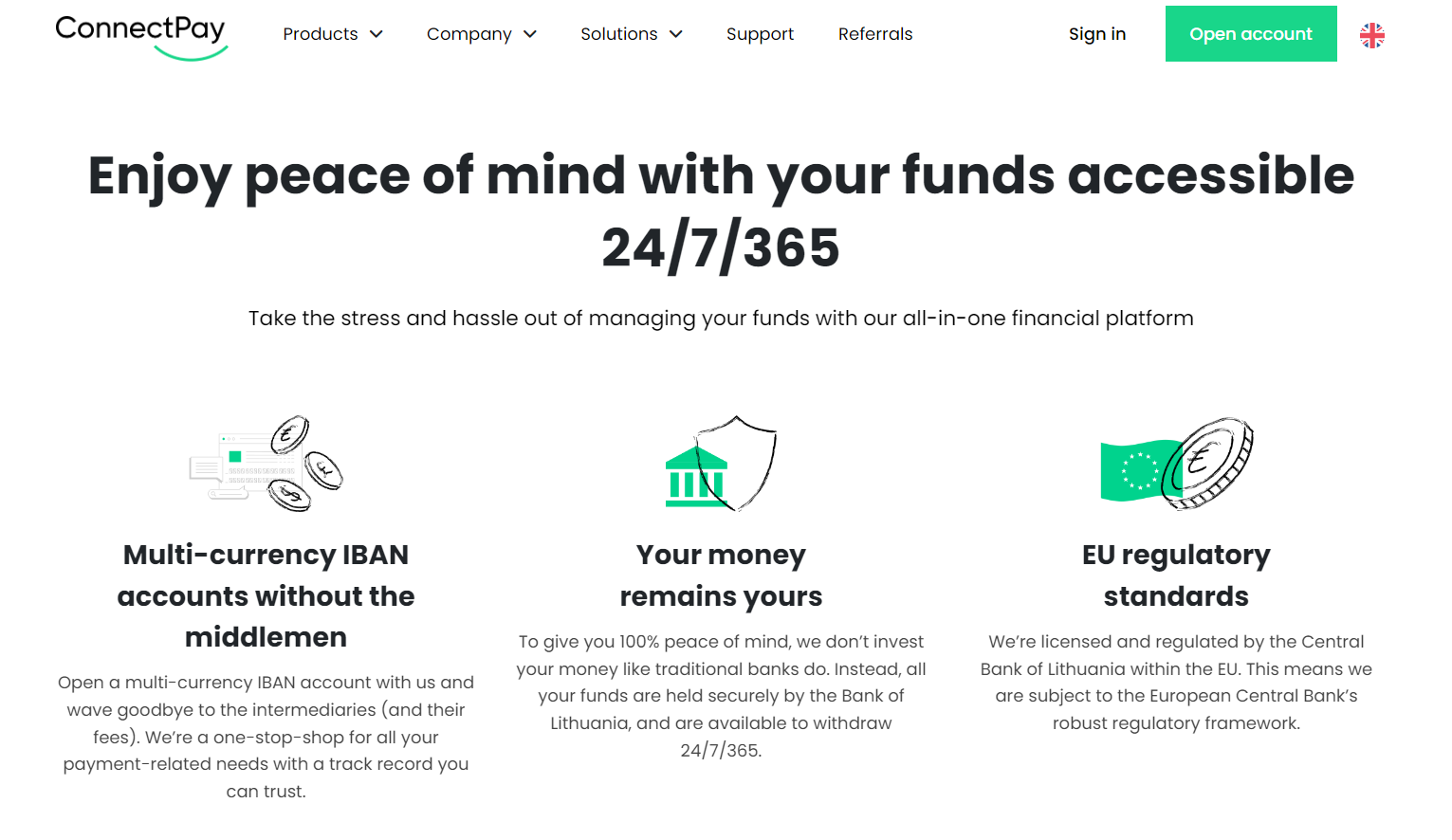

A division of the Vantage Group of companies, Moneta Markets provides traders of all skill levels with unmatched access to more than 350 different currencies, indices, commodities, share CFDs, and cryptocurrency markets on the potent MT4, MT5, and cutting-edge WebTrader platforms. Traders can access the most liquid products with genuine ECN spreads starting at 0.0 pips on forex and indices, offering the lowest trading fees in the market. As new technologies like artificial intelligence (AI), big data, and cloud computing are developed, Moneta Markets is continuing to disrupt the market. One of the many areas where it strongly relies on AI is risk management and security. The security of its clients’ funds is of utmost importance because forex is a trillion-dollar market that never sleeps.
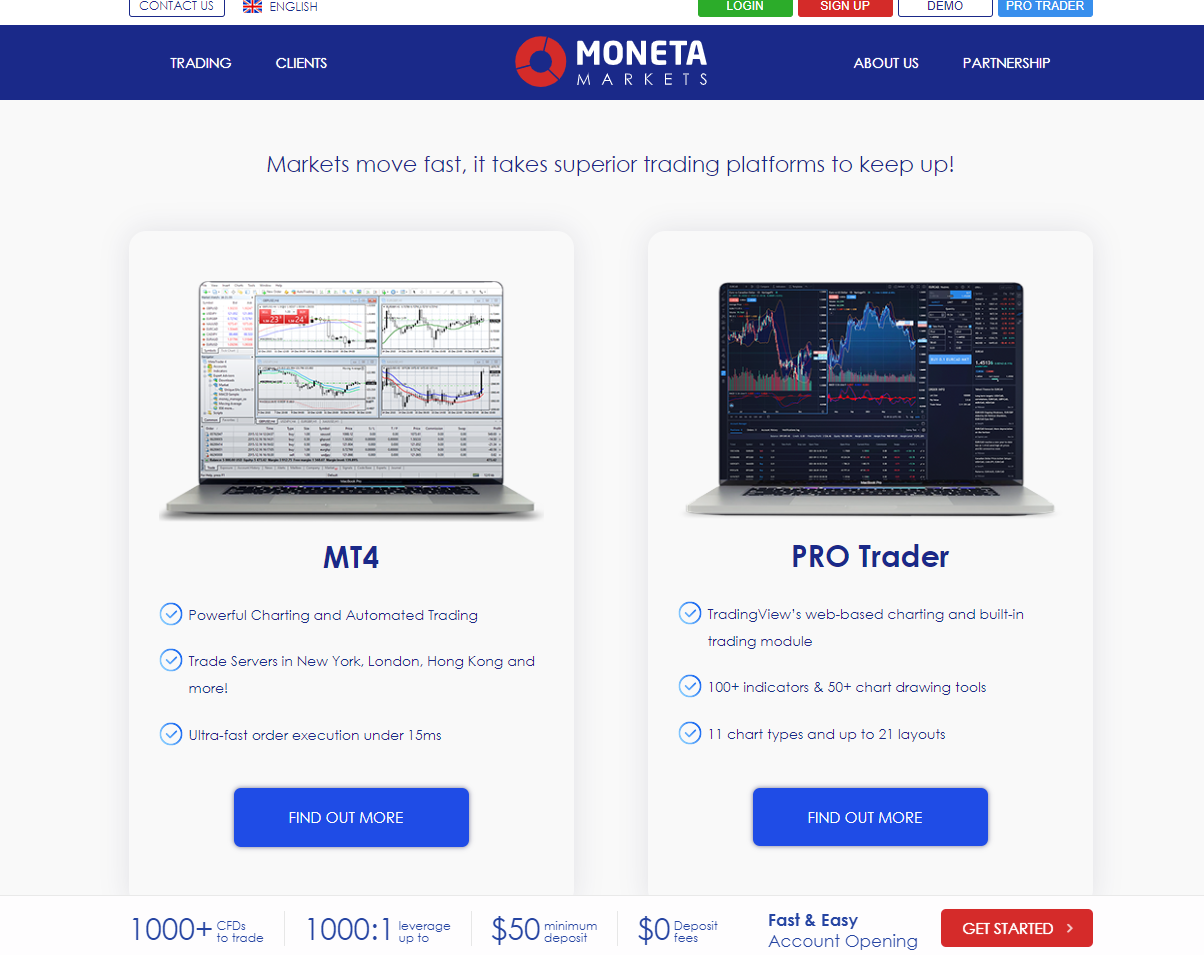

As a result, the company has sophisticated artificial intelligence models in place that guarantee clients’ protection from data breaches, black swan trading events, and the complete segregation and security of both client and company funds. It also makes use of AI models to enhance how its pricing are communicated to customers in light of the development of big data and cloud technology. To provide a more reliable and superior trading experience, the company’s clients benefit from greater speed, precision pricing, maximum platform uptime, and improved liquidity. In order to consistently improve our products and materials based on what specific clients genuinely value, it is also able to gather critical insights into trading behaviors.
The Open Banking Excellence (OBE) network brings together early adopters of open banking and open finance, including fintech, banks, regulators, and large technology companies. Its members share knowledge, spark debate, and most importantly, work together.The UK created the ‘blueprint’ for Open Banking. Industry leaders around the world look to the UK for lessons learned, expertise and practical advice. Adoption of Open Banking and Open Finance is expected to ramp up rapidly. It will generate a tremendous amount of opportunities across the spectrum. Collectively we know the principles of Open Banking (Finance and Life) embedded into new products, services will lead us to ESG innovation that solves real world problems.
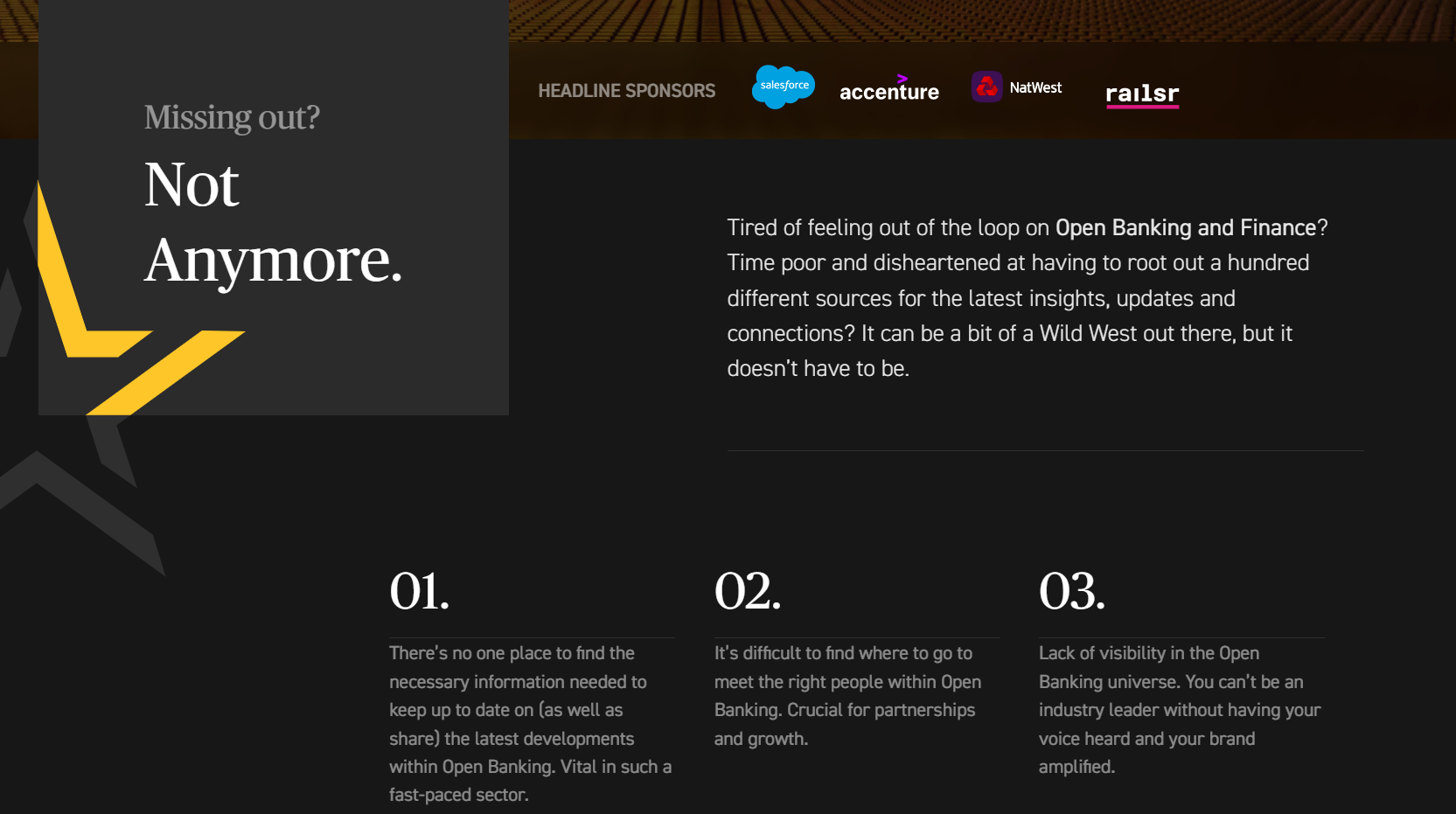

It seeks to be the authentic voice of a global network of like-minded professionals that collaborate to provide technological, regulatory, and legal insight into Open Banking and its broader implications for a vibrant and creative financial industry. OBE is a community where the sector can exchange knowledge, pick up new skills, and raise awareness about the advantages of making bank data accessible to outside parties.
Making a Quantum Leap in Successfully Navigating the FinTech Industry, Pincap is one of the NBFCs in India to have received a factoring license. Based on AI-ML and advanced analytics, PinCap’s business and operational models quickly and transparently enable the design, launch, implementation, and execution of FinTech. One of the seven NBFCs in India engaged in the factoring sector is Pinnacle Capital Solutions Private Limited (PinCap), a non-banking financial company (NBFC) with its headquarters in Gurgaon. PinCap has developed as a technology-led, data-driven organization as a result of the availability of data and cutting-edge AI, allowing numerous industry verticals to use their expertise to scale cutting-edge financial solutions.
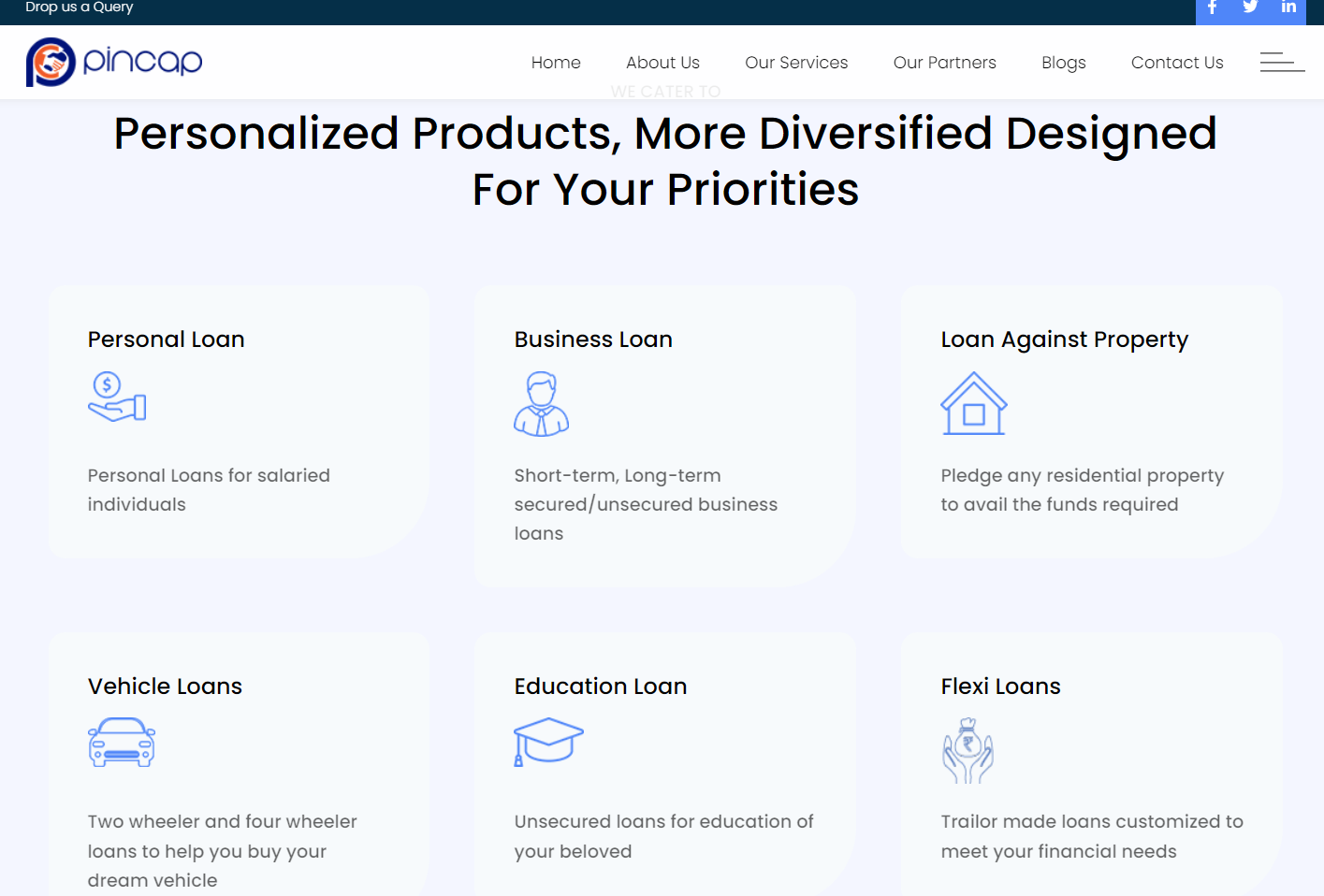

In short, PinCap stands out from its competitors due to the custom financing and month-over-month growth, which creates enormous prospects for empowering digital lending in India. PinCap has found out some of the key areas where it can use technology to leverage its experience because it has been in the financial industry for more than two decades. PinCap has made it possible for FinTech to quickly leverage their solutions over its core expertise. PinCap provides top-notch services to the incubating FinTechs in India by combining the best-in-class technical expertise and data analytics capabilities at its disposal. Businesses working with PinCap will get competitive advertisements, ready-to-use collaboration models with expensive processes, co-lending partnerships, and revenue model design.
This is an integrated Data and Digital Cloud Ready Platform. Founded in 2014, Profinch is an Indian Fintech startup that is self-funded. The company uses cutting-edge techniques and technology to assist clients in achieving their short- and long-term objectives to enable the 360-degree transformation of core operations, procedures, digitization, and data for banking, financial services, and insurance companies. With five Fortune 2000/billion dollar firms as clients, Profinch presently collaborates with more than 100 financial institutions across more than 50 countries. The company serves clients worldwide and has operations in India (Bangalore, Pune), Dubai, Singapore, Europe, and Canada.
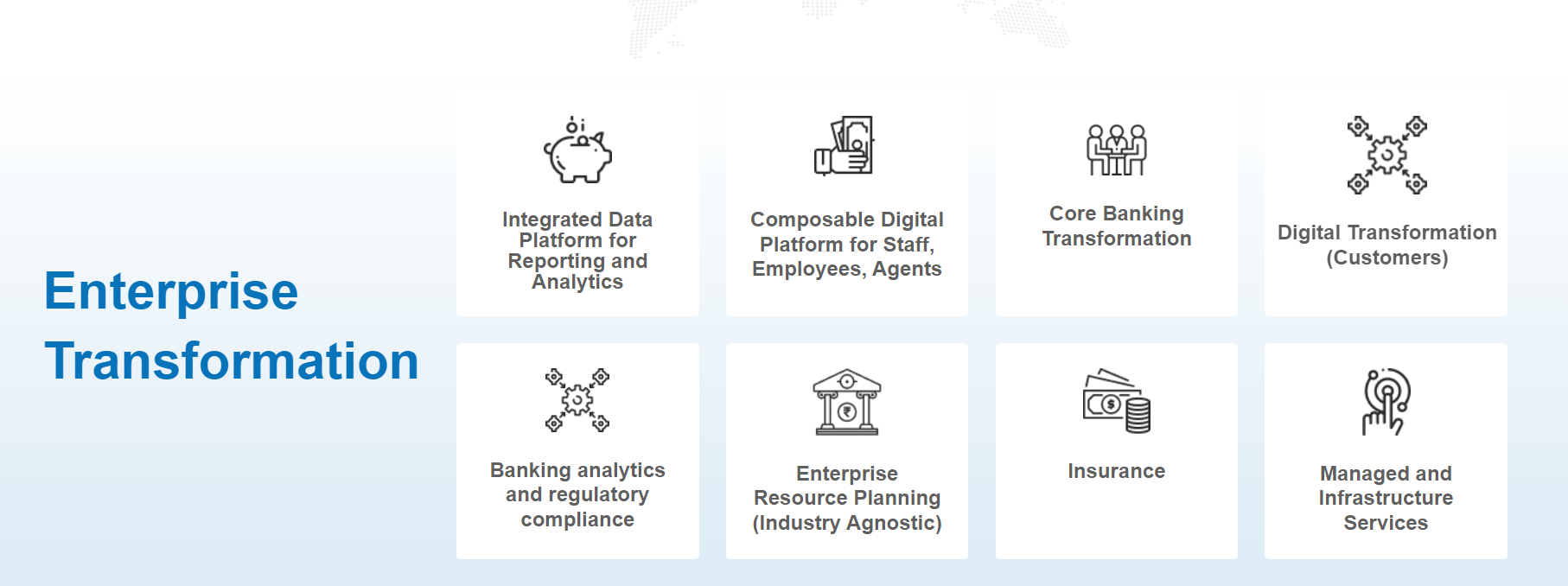

More than 550 members of the present team are spread out throughout offices and customer locations. Hyper-personalization and credit scoring are two application cases that FinTechs are already working on. In the not-too-distant future, we will also observe an increase in the willingness of regulators to collaborate with FinTechs in order to expedite their projects. End-user organizations are seeking to streamline systems and processes and increase efficiency on the cloud front, and FinTechs are collaborating with financial institutions to drive efficiencies through the cloud. It is profitable for a firm to invest in cloud computing due to the processing power it guarantees and the ability to scale up or down.
Future Wings Of Fintech
By 2026, the global market for digital banking platforms is anticipated to expand at a compound annual growth rate (CAGR) of 11.5%. The extended periods of new offerings, product developments, strategies, and mechanical capacities within the fintech industry have just begun. The majority of fintech’s growth will be driven by innovation and the promise to deliver superior customer experiences. The “Territory of Fintech 2022” analysis by Forrester reveals that imagination not only generates brilliant ideas, creative innovations, and sophisticated critical thinking but also catalyzes a growth outlook in enterprises to deliver new technologies and solutions for everyone.
[To share your insights with us, please write to sghosh@martechseries.com]
